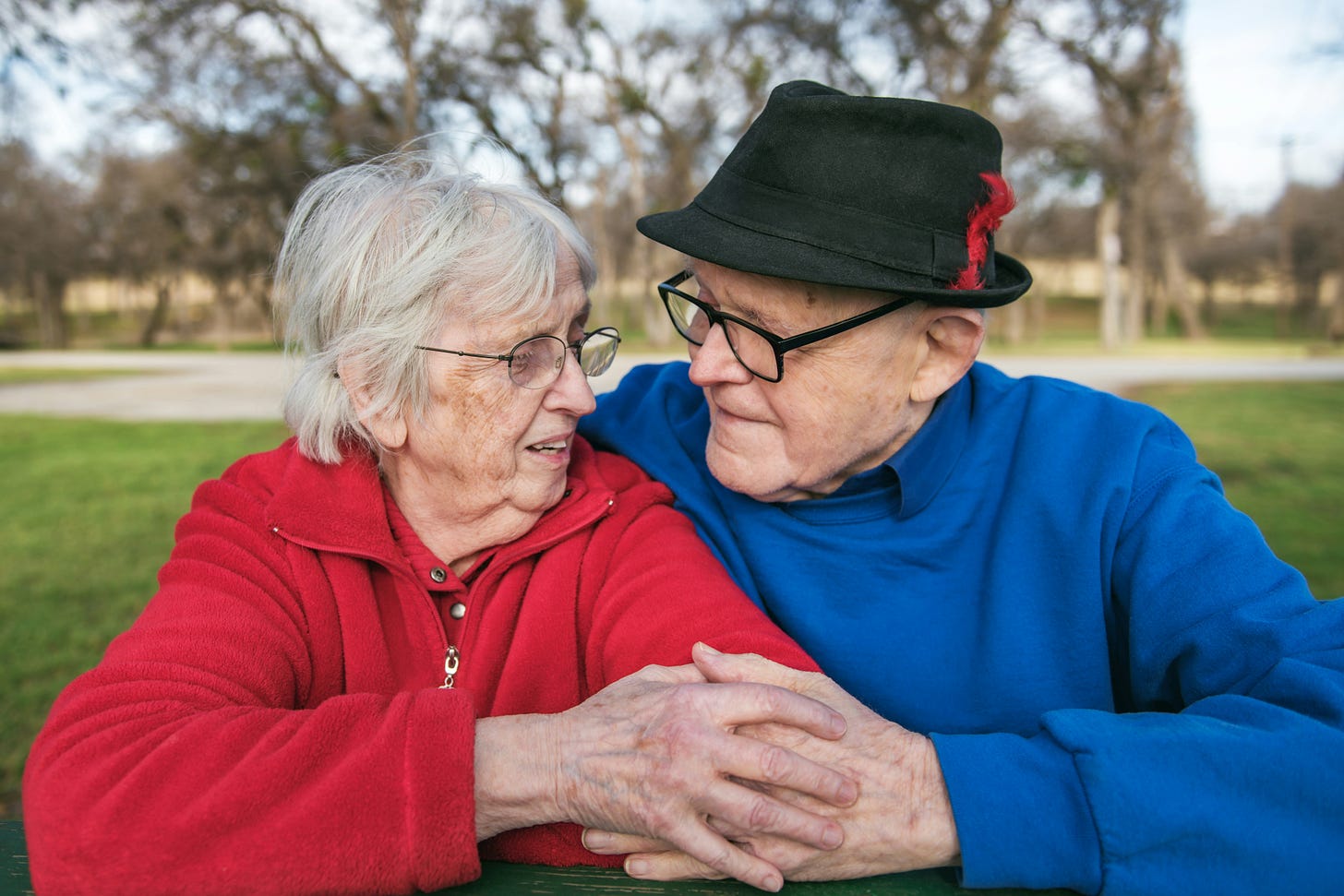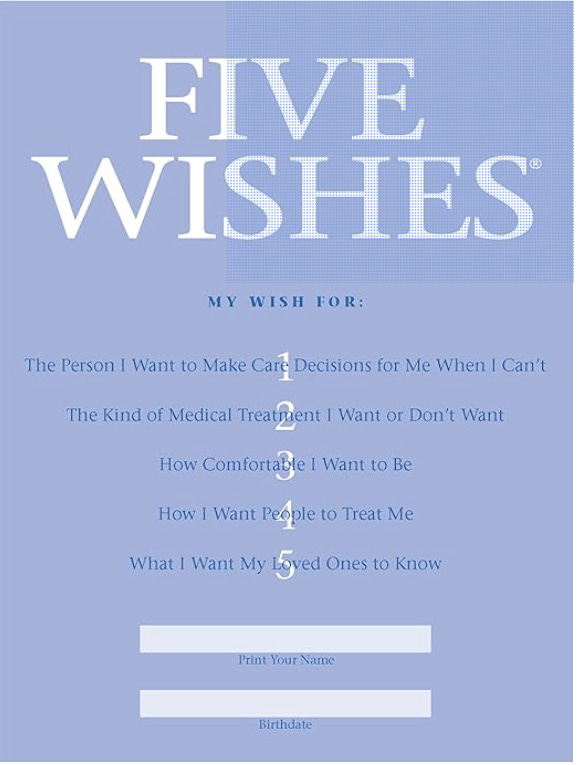Funerals bring out the best and worst in families. I know this from my work as a pastor and hospice chaplain. When someone dies family members either support each other or conflict with each other in their grief.
Grief can draw a family close together in their bonds of love. But grief can also fester old wounds and fracture a family in their anger at the deceased or other members of the family.
So how do you dance with grace with your family at the end of your life?

Unsplash+ in collaboration with Tim Mossholder
Talk About Your Wishes Before It’s Too Late
I knew that my deceased wife was declining for two years before she died. I brought the subject of her last wishes up a couple of times during those years but she did not want to talk about it. This left me making all the decisions about funeral and burial when she passed, not knowing if I was truly honoring what her wishes were.
Before it’s too late and you are unable to think clearly about what you want your last days to be like and what kind of send off you would prefer, ask yourself, “How do I want to spend my last days?” and “What, if any, kind of celebration of your life do I want to have?”
Once you are clear about your wishes in your own mind, tell your family what you want or write down your wishes, place them in an envelope and give the envelope to someone in your family if you are unable to talk face to face about the kind of end-of-life care you want and the kind of celebration of life you desire.
Letting family know your end-of-life wishes takes the burden of decision making of them and allows them to say good-bye certain they are honoring what you want.
If you don’t have an advance directive, consider completing one. An advance directive is a legal document that:
- Explains how you want medical decisions to be made if you cannot make them yourself.
- Guides your health care team and loved ones in making decisions on your behalf.
- Specifies who will make decisions for you when you are unable to do so.
A lawyer will help you draw up an advance directive with all the required content and legal language.

Another helpful document is called “Five Wishes.” Five Wishes. Five Wishes is a specific type of advance directive document that allows individuals to express their preferences regarding medical treatment and personal care decisions in the event they become unable to communicate their wishes. It goes beyond traditional living wills by addressing emotional and spiritual needs as well as medical wishes. The Five Wishes are:
- The Person I Want to Make Care Decisions for Me When I Can’t – This allows you to designate a healthcare proxy or healthcare power of attorney who will make medical decisions on your behalf.
- The Kind of Medical Treatment I Want or Don’t Want – This section addresses your preferences regarding medical interventions such as life support, pain management, and other specific medical treatments.
- How Comfortable I Want to Be – This includes your preferences for comfort care, such as pain relief and other measures to keep you comfortable.
- How I Want People to Treat Me – This section covers your preferences for how you wish to be treated emotionally and spiritually, including personal care, visits from loved ones, and religious or spiritual practices.
- What I Want My Loved Ones to Know – This allows you to share any additional messages or personal statements with your loved ones.You can find more information about “Five Wishes” at https://www.fivewishes.org.
Having your end-of-life wishes clearly stated lessens the chance of family conflict when you pass.
Advanced funeral planning also makes your last dance with your family easier. Funeral directors are happy to help you plan and pay for your funeral and the disposition of your remains in advance. Advanced funeral planning saves money because prices are locked in at the time of purchase, which, hopefully, will be years before you need the services and before prices increase.
A will and instructions about the distribution of your stuff is an important way to eliminate, or at least minimize, family conflict over who gets what you leave behind. A lawyer can help you draw up your will or you can do it yourself with online forms from sites like https://www.rocketlawyer.com.
Get Organized and Tell Your Family Where Stuff Is

Photo by Amr Taha™ on Unsplash
I was the executor of my parents’ estate. My mother died first and when my father died, my wife and I made the trip to Cape Cod to settle his affairs. My first order of business was finding where all his important papers were. My sister had heard rumors of a blue box that had important documents in it. We searched the whole house and did not find it. Apparently, the blue box was just a rumor. But the rumor of a box with important papers did make going through my father’s documents more challenging.
A strong box or locked filing cabinet for all your important legal documents is important for your family to know the location of and how to access it.
Organize your important papers all in one place and let your family know how to access them.
Make a list of your financial assets with important names, addresses, phone numbers and account numbers.
There are several online sites that help you get organized for end-of-life, https://www.joincake.com is one that I am familiar with. This site has resources for finances, health, legacy, funeral, burial and relationships. You can designate a family member to have access to the site. Cake is a free resource.
Whether on paper or on-line. Get yourself organized so your family doesn’t have to scramble once you have passed on.
Say “I’m Sorry”
Are there things you need to say ”I’m sorry” for to leave your loved ones behind in peace? We are not guaranteed our next heartbeat. Make amends while you still can.
Sometimes it only takes a simple “I’m sorry” to mend a broken relationship and give you and your family peace of mind when you pass. Leaving this world in bitterness will not serve you or your family well. Even if your family does not accept your apology, at least you will have the peace of knowing you tried to make things right.
“Forgiveness is the key that unlocks the door of resentment and the handcuffs of hatred. It is a power that breaks the chains of bitterness and the shackles of selfishness.” Corrie ten Boom
Say “I Love You”
After standing at the bedside of many hospice patients I can attest that “I love you” are the words that the dying and their family want to hear the most.
“There is no experience like having someone you love say goodbye. They show you what love looks like.” Mitch Albom, Tuesdays With Morrie
Words of love usher both the dying and their families gently into their new realities.
Prepare Your Soul to Leave this Life
If you feel alienated from your Maker, for whatever reason, perhaps it’s time to talk with a someone about it so you don’t have anger or fear when you step into eternity.
If you are at peace with God, the Universe, your Higher Power, the Great Unknown when you pass, your peace at the time of death will be a comfort to your family. When I hear family say, “She died so peacefully,” there is is always a sense of relief and comfort in their voice.
Dancing with family at end-of-life is never easy. But preparation makes the dance go smoother for both dance partners.
